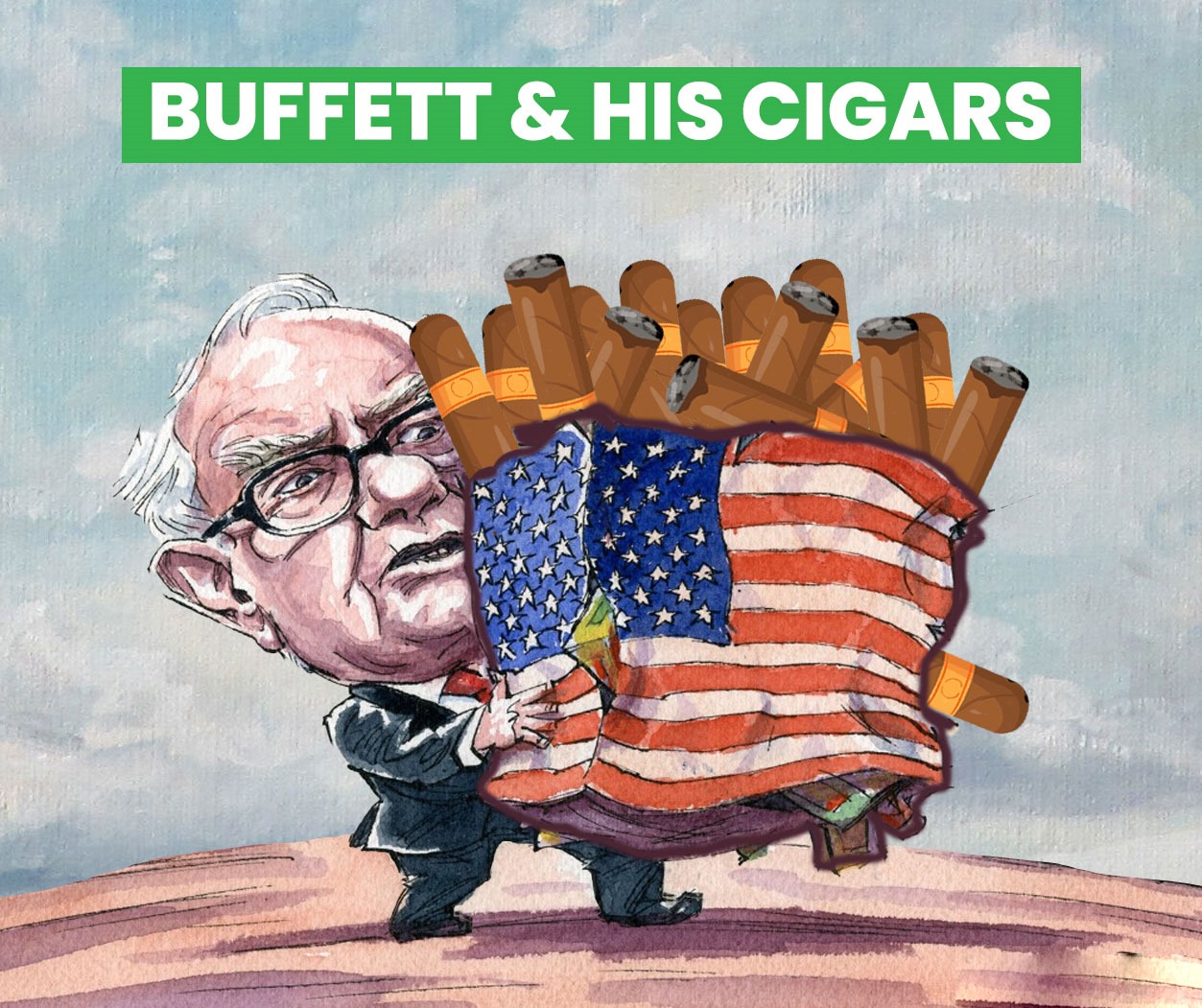Cigar Butt Investing Approach- Buffett's Early Age Success Mantra

Perhaps, there is no investor in the world who has not heard of Warren Buffet. We credit him as an idol for popularising the value investing approach. But is that all that he did throughout his investment journey - holding stocks for as long as 35 years?
Well the answer is NO! Not even Warren Buffett held stocks for years and years when he first started rather he followed something known as Cigar Butt investing approach.
You need not be amazed hearing this term for the first time. It’s as simple as it spells out.
What actually is Cigar Butt Investing ?
Imagine a person who loves smoking cigars on a regular basis but has no money to buy a new one. On the sidewalk he finds this ugly and soggy looking discarded cigar. But it lures him because it still has one last puff left in it which would cost him nothing. Cigar Butt Investing also runs along the similar philosophy.
In the words of Buffett “Cigar Butt approach to investing is where you try and find a really kind of pathetic company, but it sells so cheap that you think there is one good puff left in it”. Though it might not look good to buy and hold it for a long time, the bargain purchase would make that one last puff all free.
However, not all businesses labelled as "cigar butt companies" are unattractive or struggling enterprises. Some are, in fact, hidden gems that have been overlooked by investors. Essentially, this approach focuses on buying companies that are trading below a conservative assessment of their liquidation values. It also does not demand you to hold stocks for years instead to sell them off to bag in some quick profits.
How do we know that the discarded cigar has one puff left?
We can calculate Net Current Asset Value (NCAV) to find out such companies or as well call them Discarded Cigar Butts.
The formula for this will be:
NCAV = {Current Assets – (All Current Liabilities + Preferred Stock)} / Outstanding Common Shares
Meaning that, you can simply start with valuing the total current assets of the company. Proceed by subtracting all the debts, liabilities and the preferred stocks that the company owes for they get paid first. This helps you to detect the company’s worth in the case it liquidates and pays off all of its existing debts.
After that, divide the outcome by the total number of common shares currently in circulation. It provides you with an idea of how each shareholder is getting if the company liquidates soon, pays off all its debts and distributes the remainder to its shareholders.
Buffett's investment approach focusing on cigar butt companies proved remarkably successful. In the 1950s, he achieved the highest returns of his career using this strategy, averaging an impressive 31.6% annual return over his 12-year partnership period.
Source: Buffett’s Partnership Letter (January 22nd, 1969)
You can access the complete letter by clicking the following link:
https://valuehunter.files.wordpress.com/2009/03/19690122.pdf
What if the stock price doesn’t rise at all?
If the stock price movement isn’t in the investor’s favour, he is to buy more units at the reduced value in order to increase the ownership and finally liquidate the company. Profits are ensured as the investor following this approach religiously would have bought them below NCAV.
Are there any downsides to this approach?
You need to be very clear that this is not a “Value Investing” approach where you are looking to buy wonderful businesses as a long - term investment below their intrinsic or fair value. Instead, this is a short - term strategy where you are actually looking for weak companies trying to bag in the last gasp in value.
Buffett often employs an analogy when explaining this strategy - he says, "It's never just one cockroach in the kitchen." The idea behind this is that in such companies, not all issues become apparent before you commit to investing. And as soon as one problem gets resolved, another one surfaces.
Furthermore, it wouldn't be a sound strategy to hold onto a struggling company for 5 to 10 years, as you would inevitably face opportunity cost. As we understand, "Time is the friend of a wonderful business, but an enemy to a mediocre one."
Closing Remarks
It is notable that even though Warren Buffet stopped using Cigar Butt Investing approach once he realised this approach is resisting him from scaling to the full potential, he considers his purchase of Berkshire Hathaway as a Cigar Butt.
Investment philosophies across the globe have changed a lot since the 1950s when Mr. Buffett used it. Nowadays it is tougher to find these kinds of opportunities in the market since profits are arbitraged away because of the increasing number of participants hunting for it. However, it’s one of the many investing strategies that you could consider for your own portfolio.
